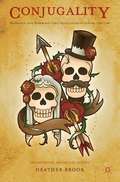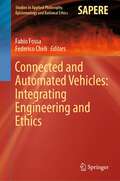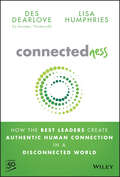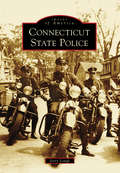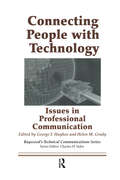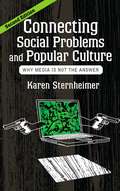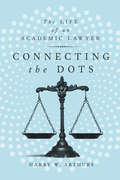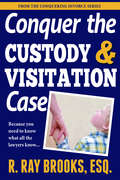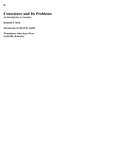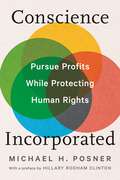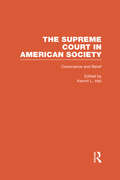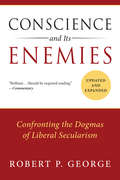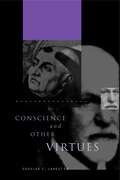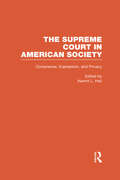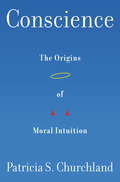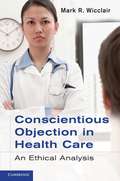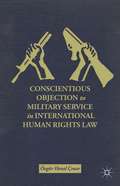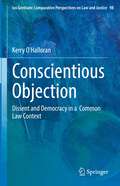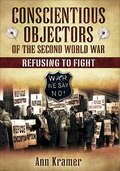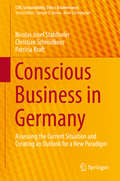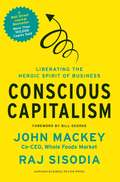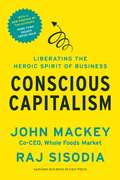- Table View
- List View
Conjugal Union: What Marriage Is and Why It Matters
by Patrick Lee Robert P. GeorgeThis book defends the conjugal view of marriage. Patrick Lee and Robert P. George argue that marriage is a distinctive type of community: the union of a man and a woman who have committed to sharing their lives on every level of their beings (bodily, emotionally, and spiritually) in the kind of union that would be fulfilled by conceiving and rearing children together. The comprehensive nature of this union, and its intrinsic orientation to procreation as its natural fulfillment, distinguishes marriage from other types of community and provides the basis for the norms of marital exclusivity and permanence. Lee and George detail how the basic moral norms regarding sexual acts follow from the ethical requirement to respect the good of marriage and explain how the law should treat marriage, given its conjugal nature, examining both the same-sex-marriage issue and civil divorce.
Conjugality: Marriage and Marriage-like Relationships before the Law
by Heather BrookConjugal Rites explores the legal shape of marriage as it has been determined by countless decisions concerning entry and exit into the ancient rite. Heather Brook examines the countless rules and protocols governing marriage that make it valid in the eyes of the law. She argues that the various sexual performatives associated with marriage can establish, reinforce, or rupture conjugal unity while exploring the historical and politcal regulations and prohibitions marriage has faced. Brook unites past and present, public and private, to investigate the changing meanings and effects of conjugality, and challenge the way we think about sex, gender and relationships.
Connected and Automated Vehicles: Integrating Engineering and Ethics (Studies in Applied Philosophy, Epistemology and Rational Ethics #67)
by Federico Cheli Fabio FossaThis book reports on theoretical and practical analyses of the ethical challenges connected to driving automation. It also aims at discussing issues that have arisen from the European Commission 2020 report “Ethics of Connected and Automated Vehicles. Recommendations on Road Safety, Privacy, Fairness, Explainability and Responsibility”. Gathering contributions by philosophers, social scientists, mechanical engineers, and UI designers, the book discusses key ethical concerns relating to responsibility and personal autonomy, privacy, safety, and cybersecurity, as well as explainability and human-machine interaction. On the one hand, it examines these issues from a theoretical, normative point of view. On the other hand, it proposes practical strategies to face the most urgent ethical problems, showing how the integration of ethics and technology can be achieved through design practices. All in all, this book fosters a multidisciplinary approach where philosophy, ethics, and engineering are integrated, rather than just juxtaposed. It is meant to inform and inspire an audience of philosophers of technology, ethicists, engineers, developers, manufacturers, and regulators, among other interested readers.
Connectedness: How the Best Leaders Create Authentic Human Connection in a Disconnected World
by Des Dearlove Lisa HumphriesImprove talent retention and employee productivity by encouraging connectedness in your firm In Connectedness, British business journalist and management theorist Des Dearlove delivers an insightful and practical discussion of how firms can build meaningful and authentic connections with their employees, encouraging productivity, improving talent retention, and creating an enduring competitive advantage. You’ll find out why the latest peer-reviewed research lends support to the notion that it is the nature of interpersonal environments – and not compensation – that many employees consider to be the most impactful when they’re deciding whether to exit a job. In the book, you’ll: Explore the most important factors that determine the connectedness of a healthy working environment Common mistakes and myths about employee wellbeing that sidetrack managerial efforts to improve working culture at a firm Examples and case studies that demonstrate the real-world impact of the ideas discussed in the book Perfect for managers, executives, directors, and other business leaders seeking to improve employee retention, productivity, engagement, and health, Connectedness is also a must-read resource for employees, human resources professionals, consultants, and everyone else with an interest in employee wellbeing and workplace productivity and safety.
Connecticut State Police (Images of America)
by Jerry Longohe Connecticut State Police Department was created in 1903 to preserve the peace, arrest convicting offenders, and stay alert to liquor and gambling violations, especially those on Sundays. The birth of the department came at time when temperance leagues began forming across the country. Connecticut State Police is an account of a department and its rise to battle, among other things, "demon rum." Today, troopers cover approximately half of the towns in the state of Connecticut and all of its highways. The CSP became successful and developed a reputation among the law enforcement community as one of the best in the nation. Connecticut state police grew in their responsibilities and expectations, taking on the duties of fire marshal, motor vehicle testing, and dozens of other important and influential agency tasks. This collection of photographs covers the many people, events, and tragedies that have shaped this respected department.
Connecting International Law with Public Law: The Public Law of Gender
by Kim Rubenstein Rubenstein, Kim and Young, Katharine G. Katharine G. YoungWith the worldwide sweep of gender-neutral, gender-equal or gender-sensitive public laws in international treaties, national constitutions and statutes, it is timely to document the raft of legal reform and to critically analyse its effectiveness. In demarcating the academic study of the public law of gender, this book brings together leading lawyers, political scientists, historians and philosophers to examine law's structuring of politics, governing and gender in a new global frame. Of interest to constitutional and statutory designers, advocates, adjudicators and scholars, the contributions explore how concepts such as equality, accountability, representation, participation and rights, depend on, challenge or enlist gendered roles and/or categories. These enquiries suggest that the new public law of gender must confront the lapses in enforcement, sincerity and coverage that are common in both national and international law and governance, and critically and pluralistically recast the public/private distinction in family, community, religion, customary and market domains.
Connecting People with Technology: Issues in Professional Communication (Baywood's Technical Communications)
by George F. HayhoeThis book explores five important areas where technology affects society, and suggests ways in which human communication can facilitate the use of that technology.Usability has become a foundational discipline in technical and professional communication that grows out of our rhetorical roots, which emphasize purpose and audience. As our appreciation of audience has grown beyond engineers and scientists to lay users of technology, our appreciation of the diversity of those audiences in terms of age, geography, and other factors has similarly expanded.We are also coming to grips with what Thomas Friedman calls the 'flat world,' a paradigm that influences how we communicate with members of other cultures and speakers of other languages. And because most of the flatteners are either technologies themselves or technology-driven, technical and professional communicators need to leverage these technologies to serve global audiences.Similarly, we are inundated with information about world crises involving health and safety issues. These crises are driven by the effects of terrorism, the aging population, HIV/AIDS, and both human-made and natural disasters. These issues are becoming more visible because they are literally matters of life and death. Furthermore, they are of special concern to audiences that technical and professional communicators have little experience targeting - the shapers of public policy, seniors, adolescents, and those affected by disaster.Biotechnology is another area that has provided new roles for technical and professional communicators. We are only beginning to understand how to communicate the science accurately without either deceiving or panicking our audience. We need to develop a more sophisticated understanding of how communication can shape reactions to biotechnology developments. Confronting this complex network of issues, we're challenged to fashion both our message and the audience's perceptions ethically.Finally, today's corporate environment is being shaped by technology and the global nature of business. Technical and professional communicators can play a role in capturing and managing knowledge, in using technology effectively in the virtual workplace, and in understanding how language shapes organizational culture.
Connecting Social Problems and Popular Culture
by Karen SternheimerIs violence on the streets caused by violence in video games? Does cyber-bullying lead to an increase in suicide rates? Are teens promiscuous because of Teen Mom? As Karen Sternheimer clearly demonstrates, popular culture is an easy scapegoat for many of society’s problems, but it is almost always the wrong answer. Now in its second edition, Connecting Social Problems and Popular Culture goes beyond the news-grabbing headlines claiming that popular culture is public enemy number one to consider what really causes the social problems we are most concerned about. The sobering fact is that a "media made them do it" explanation fails to illuminate the roots of social problems like poverty, violence, and environmental degradation. Sternheimer’s analysis deftly illustrates how welfare "reform," a two-tiered health care system, and other difficult systemic issues have far more to do with our contemporary social problems than Grand Theft Auto or Facebook. The fully-revised new edition features recent moral panics--think sexting and cyberbullying--and an entirely new chapter exploring social media. Expanded discussion of how we understand society’s problems as social constructions without disregarding empirical evidence, as well as the cultural and structural issues underlying those ills, allows students to stretch their sociological imaginations.
Connecting the Dots: The Life of an Academic Lawyer
by Harry W. ArthursHarry W. Arthurs is a name held in high esteem by labour lawyers and academics throughout the world. Although many are familiar with Arthurs's contributions and accomplishments, few are acquainted with the man himself, or how he came to be one of the most influential figures in Canadian law and legal education. In Connecting the Dots Arthurs recounts his adventures in academe and the people, principles, ideas, motivations, and circumstances that have shaped his thinking and his career. The memoir offers intimate recollections and observations, beginning with the celebrated ancestors who influenced Arthurs's upbringing and education. It then sweeps through his career as an architect of important reforms in legal education and explores his research as a trailblazing commentator on the legal profession. Arthurs analyzes his experiences as a legal theorist and historian and his pivotal role as a discordant voice in debates over constitutional and administrative law. Along the way, he muses on the intellectual projects he embraced or set in motion, the institutional reforms he advocated, the public policies he recommended, and how they fared long term. Framed with commentary on the historical context that shaped each decade of his career and punctuated by moments of personal reflection, Connecting the Dots is a humorous, frank, and fearless account of the rise and fall of Canadian labour law from the man who was at the centre of it all.
Conquering the Custody and Visitation Case
by Ray BrooksYou can help yourself and help your attorney by knowing the best way to prepare and the best way to present the evidence in your Custody And Visitation case. Every judge has a list of things that they must evaluate before they can make a decision in the custody case. If you know what those things are and how you should present them you have the advantage. Preparation is everything, and you will be the one who is prepared if you read these pages and follow these tips. Everything from how to put together a "parenting plan" to how to act and things to say to a "custody evaluator" are included.
Conscience And Its Problem: An Introduction To Casuistry (Library Of Theological Ethics)
by Kenneth E. KirkThis book, originally published in 1927, has proven to be one of the most important and influential books in the field of ethics in the twentieth century. It remains a pertinent, original, and insightful work--a landmark statement of modern casuistry. The Library of Theological Ethics series focuses on what it means to think theologically and ethically. It presents a selection of important and otherwise unavailable texts in easily accessible form. Volumes in this series will enable sustained dialogue with predecessors though reflection on classic works in the field.
Conscience Incorporated: Pursue Profits While Protecting Human Rights
by Michael H. PosnerA guide for business leaders working to create socially conscious, sustainable companies—while pursuing profitsAmid growing international concerns about income inequality, labor abuses, racial injustice, and disinformation online, Conscience Incorporated examines the gaps in current corporate social responsibility measures and what more needs be done to address these challenges. The rise of new technologies such as smartphones and social media have made it easier than ever to document and spread awareness of corporate actions. Despite these developments, large corporations often fail to meaningfully address the human rights abuses linked to their business models and practices. In Conscience Incorporated, Michael Posner addresses what lies at the root of these challenges, drawing on his extensive personal experience as a human rights lawyer, State Department official under President Obama, chair of the Fair Labor Association and Director of the Center for Business and Human Rights at NYU Stern School of Business.Drawing from research into the history of business ethics and anchoring his argument with examples of companies publicly accused of human rights abuses—Nike, Coca-Cola, Walmart, Meta, and more—Posner provides a blueprint for global business leaders to navigate human rights challenges and adopt sustainable corporate practices. Conscience Incorporated highlights the need for increased protections for outsourced workers in faraway nations, greater attention to harmful online content, and prioritization of human rights by investors. He argues that growing public awareness has not been enough to enforce ethical practices for global businesses. As a result, governments, especially in Europe, are becoming more involved in regulating global business practices in various industries.Posner proposes a series of concrete reforms and argues compellingly for why businesses need to devote greater time and resources to protecting basic human rights. Conscience Incorporated is a powerful challenge to the status quo and advocates for a fundamental shift in the principles that govern global businesses.
Conscience and Belief: The Supreme Court in American Society (The\supreme Court In American Society Ser. #Vol. 8)
by Kermit L. HallAvailable as a single volume or as part of the 10 volume set Supreme Court in American Society
Conscience and Its Enemies: Confronting the Dogmas of Liberal Secularism
by Robert P. George"Many in elite circles yield to the temptation to believe that anyone who disagrees with them is a bigot or a religious fundamentalist. Reason and science, they confidently believe, are on their side. With this book, I aim to expose the emptiness of that belief." From the introduction: Assaults on religious liberty and traditional morality are growing fiercer. Here, at last, is the counterattack. Showcasing the talents that have made him one of America's most acclaimed and influential thinkers, Robert P. George explodes the myth that the secular elite represents the voice of reason. In fact, George shows, it is on the elite side of the cultural divide where the prevailing views frequently are nothing but articles of faith. Conscience and Its Enemies reveals the bankruptcy of these too often smugly held orthodoxies while presenting powerfully reasoned arguments for classical virtues.
Conscience and Other Virtues: From Bonaventure to MacIntyre (G - Reference, Information and Interdisciplinary Subjects)
by Douglas C. LangstonConscience, once a core concept for ethics, has mostly disappeared from modern moral theory. In this book Douglas Langston traces its intellectual history to account for its neglect while arguing for its still vital importance, if correctly understood.In medieval times, Langston shows in Part I, the notions of "conscientia" and "synderesis" from which our contemporary concept of conscience derives were closely connected to Greek ideas about the virtues and practical reason, although in Christianized form. As modified by Luther, Butler, and Kant, however, conscience later came to be regarded as a faculty like will and intellect, and when faculty psychology fell into disrepute, so did the role of conscience in moral philosophy.A view of mature conscience that sees it as relational, with cognitive, emotional, and conative dimensions, can survive the criticisms of conscience as faculty. In Part II, through discussions of Freud, Ryle, and other modern thinkers, Langston proceeds to reconstruct conscience as a viable philosophical concept.Finally, in Part III, this better grounded concept is connected with the modern revival of virtue ethics, and Langston shows how crucial conscience is to a theory of virtue because it is fundamental to the training of any morally good person.
Conscience, Expression, and Privacy: The Supreme Court in American Society (The\supreme Court In American Society Ser. #Vol. 9)
by Kermit L. HallAvailable as a single volume or as part of the 10 volume set Supreme Court in American Society
Conscience: The Origins Of Moral Intuition
by Patricia ChurchlandHow do we determine right from wrong? Conscience illuminates the answer through science and philosophy. In her brilliant work Touching a Nerve, Patricia S. Churchland, the distinguished founder of neurophilosophy, drew from scientific research on the brain to understand its philosophical and ethical implications for identity, consciousness, free will, and memory. In Conscience, she explores how moral systems arise from our physical selves in combination with environmental demands. All social groups have ideals for behavior, even though ethics vary among different cultures and among individuals within each culture. In trying to understand why, Churchland brings together an understanding of the influences of nature and nurture. She looks to evolution to elucidate how, from birth, our brains are configured to form bonds, to cooperate, and to care. She shows how children grow up in society to learn, through repetition and rewards, the norms, values, and behavior that their parents embrace. Conscience delves into scientific studies, particularly the fascinating work on twins, to deepen our understanding of whether people have a predisposition to embrace specific ethical stands. Research on psychopaths illuminates the knowledge about those who abide by no moral system and the explanations science gives for these disturbing individuals. Churchland then turns to philosophy—that of Socrates, Aquinas, and contemporary thinkers like Owen Flanagan—to explore why morality is central to all societies, how it is transmitted through the generations, and why different cultures live by different morals. Her unparalleled ability to join ideas rarely put into dialogue brings light to a subject that speaks to the meaning of being human.
Conscientious Objection in Health Care
by Mark R. WicclairHistorically associated with military service, conscientious objection has become a significant phenomenon in health care. Mark Wicclair offers a comprehensive ethical analysis of conscientious objection in three representative health care professions: medicine, nursing and pharmacy. He critically examines two extreme positions: the 'incompatibility thesis', that it is contrary to the professional obligations of practitioners to refuse provision of any service within the scope of their professional competence; and 'conscience absolutism', that they should be exempted from performing any action contrary to their conscience. He argues for a compromise approach that accommodates conscience-based refusals within the limits of specified ethical constraints. He also explores conscientious objection by students in each of the three professions, discusses conscience protection legislation and conscience-based refusals by pharmacies and hospitals, and analyzes several cases. His book is a valuable resource for scholars, professionals, trainees, students, and anyone interested in this increasingly important aspect of health care.
Conscientious Objection to Military Service in International Human Rights Law
by Özgür Heval ÇinarThis book examines the right to conscientious objection in international human rights law. It begins with an exploration of the concept of conscience and its evolution. Özgür Heval Çinar analyzes human rights law at both the international and regional level, considering UN, European, and inter-American mechanisms.
Conscientious Objection: Dissent and Democracy in a Common Law Context (Ius Gentium: Comparative Perspectives on Law and Justice #98)
by Kerry O'HalloranThis book traces, assesses and compares the history of conscientious objection – in the cultural context of six common law nations – from refusal of military service and a range of similar moral dilemmas, to objecting to abortion, to the current social polarisation surrounding vaccination hesitancy in the COVID-19 pandemic. It considers the impact of this form of dissent in relation to social movements like Black Lives Matter, social activists such as Gandhi, and whistle blowers like Daniel Ellsberg. It reflects on the relationships between the sacred and the secular, the state and the citizen, in order to better understand the responsibilities of citizenship in our increasingly secular societies. It analyses what defines the conscientiousness of an objection from both legal and ethical standpoints. It examines what constitutes a matter of conscience, why this should justify exemption from civic duties and why this form of dissent has such a time-honoured status. It explores the increased reliance on “grounds of religion, belief or conscience” as providing justification for excusing some citizens from complying with certain responsibilities – mandated by equality and non-discrimination legislation – that are binding for all others. By conducting a comparative evaluation of national law and judicial rulings on a fixed agenda of issues, this book identifies key jurisdictional differences concerning conscientious objection. In so doing, it highlights the importance of cultural context and constructs a jurisdiction-specific overview of legislation, policies and case law. By tracking policy developments and highlighting crucial judicial rulings – particularly in the US – it provides insights into the probable future direction of developments in national law relating to conscientious objection. Lastly, the book draws attention to some of the potential consequences of manifesting dissent by opting out of performing public services – e.g. the possible local breakdown of specific service availability (e.g. abortion, officiating at same-sex marriages, and immunisation); prompting population movements as established democratic civil rights are locally negated (reproductive rights, LGBT rights, right to health protection); fragmenting society into a geographic patchwork of regions in which some citizens are branded as conservative/reactionary and others as progressive; and fuelling the culture wars – with profound implications for a coherent democratic society.
Conscientious Objectors of the Second World War: Refusing to Fight
by Ann Kramer&“Drawing on extensive primary sources, Kramer describes the inter-war peace movement that gave birth to many conscientious objectors&” (Military History Monthly). Even today, most histories of the world wars focus on those who fought. Those who refused to do so are often overlooked. It is perhaps only recently that their bravery and extraordinary principles are being recognized. In the First World War, 16,000 men in Britain became the first ever conscientious objectors, and were reviled and brutalized as a result. The conscientious objectors of the Second World War—both men and women—did not experience the same treatment as those earlier COs, but to some extent it was a harder stand to take. It was not easy to refuse to fight in the face of Nazism and Fascism, when large areas of Europe were occupied and when almost the entire British population was organized for total war. Conscientious Objectors of the Second World War: Refusing to Fight tells the stories of these remarkable men and women who bravely took a stand and refused to be conscripted. To bring this fascinating subject to life, Ann Kramer has used extensive prime sources, such as interviews, memoirs, contemporary newspaper accounts, letters, and diaries. Working from these and other sources, she asks who these men and women were who refused conscription and killing, what their reasons were for being conscientious objectors, and how they were treated. The book finishes by exploring their achievements and impact, suggesting that their principles and influence continue to this day. &“[Kramer shows] conscientious objectors in all their infinite variety.&” —Peace News
Conscious Business in Deutschland: Bewertung des Status quo und Ausblick auf ein neues Paradigma in Wirtschaft und Gesellschaft
by Nicolas Josef Stahlhofer Christian Schmidkonz Patricia KraftDieses Buch stellt Conscious Business im Sinne eines bewussten Wirtschaftens als einen sich ständig erweiternden und kraftvollen Ansatz vor, um Organisationen neu zu erfinden und auf eine menschliche und nutzbringende Weise zu gestalten. Es untersucht insbesondere die Charakteristika, Haupttreiber und Herausforderungen von Conscious Businesses in Deutschland. Das Buch bietet einen strukturierten Überblick über die aktuelle Situation des Konzepts und skizziert wichtige Aspekte, die es zu beachten gilt, um eigenständige Entscheidungen zu treffen. Vier Fallstudien erfolgreicher bewusster Unternehmen - unterschiedlich in Größe, Branche, Rechtsform und internationaler Ausrichtung - zeigen konkrete Best-Practice-Beispiele auf und belegen die Fähigkeit des Ansatzes, zielführende und zugleich profitable Geschäftsmodelle zu entwickeln.
Conscious Business in Germany: Assessing the Current Situation and Creating an Outlook for a New Paradigm (CSR, Sustainability, Ethics & Governance)
by Nicolas Josef Stahlhofer Christian Schmidkonz Patricia KraftThis book presents conscious business as a constantly expanding and powerful approach to reinvent and shape organizations in a human and beneficial manner. In particular it examines the core characteristics, main drivers and challenges of conscious businesses in Germany. The book offers a structured overview of the current situation of the concept and outlines important issues that need to be considered in order to make independent decisions. Four case studies of successful conscious companies - differing in terms of their size, industry, legal form and international orientation - reveal concrete best practices and provide evidence for the approach's ability to deliver business paradigms that are simultaneously purposeful and profitable.
Conscious Capitalism
by Bill George Rajendra Sisodia John MackeyAs seen on Oprah's Super Soul SundayA New York Times and Wall Street Journal BestsellerIn this book, Whole Foods Market cofounder John Mackey and professor and Conscious Capitalism, Inc. cofounder Raj Sisodia argue for the inherent good of both business and capitalism. Featuring some of today's best-known companies, they illustrate how these two forces can-and do-work most powerfully to create value for all stakeholders: including customers, employees, suppliers, investors, society, and the environment.These "Conscious Capitalism" companies include Whole Foods Market, Southwest Airlines, Costco, Google, Patagonia, The Container Store, UPS, and dozens of others. We know them; we buy their products or use their services. Now it's time to better understand how these organizations use four specific tenets-higher purpose, stakeholder integration, conscious leadership, and conscious culture and management-to build strong businesses and help advance capitalism further toward realizing its highest potential.As leaders of the Conscious Capitalism movement, Mackey and Sisodia argue that aspiring leaders and business builders need to continue on this path of transformation-for the good of both business and society as a whole.At once a bold defense and reimagining of capitalism and a blueprint for a new system for doing business grounded in a more evolved ethical consciousness, this book provides a new lens for individuals and companies looking to build a more cooperative, humane, and positive future.
Conscious Capitalism, With a New Preface by the Authors
by Bill George Rajendra Sisodia John MackeyAs seen on Oprah's Super Soul SundayThe bestselling book, now with a new preface by the authorsAt once a bold defense and reimagining of capitalism and a blueprint for a new system for doing business, Conscious Capitalism is for anyone hoping to build a more cooperative, humane, and positive future.Whole Foods Market cofounder John Mackey and professor and Conscious Capitalism, Inc. cofounder Raj Sisodia argue that both business and capitalism are inherently good, and they use some of today's best-known and most successful companies to illustrate their point. From Southwest Airlines, UPS, and Tata to Costco, Panera, Google, the Container Store, and Amazon, today's organizations are creating value for all stakeholders-including customers, employees, suppliers, investors, society, and the environment.Read this book and you'll better understand how four specific tenets-higher purpose, stakeholder integration, conscious leadership, and conscious culture and management-can help build strong businesses, move capitalism closer to its highest potential, and foster a more positive environment for all of us.

